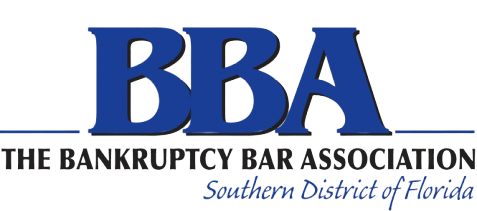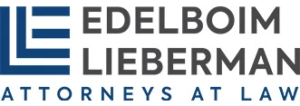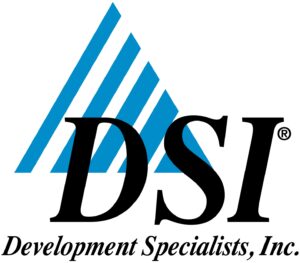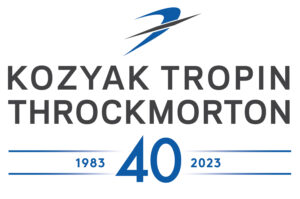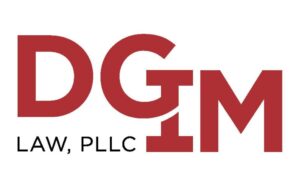Welcome to the BBA’s Newsletter, where we keep members updated on key local and national bankruptcy cases and trends. In this newsletter, we discuss recent bankruptcy decisions from our District touching on various bankruptcy concepts. These concepts range from the absolute priority rule, applicability of Florida state fee shifting law in adversary proceedings, enforcement of the automatic stay, and the impact of the statute of limitations on claims predicated on an installment contract. We also highlight some noteworthy national bankruptcy cases and issues relating to the Johnson & Johnson and Purdue Pharma cases.
RECENT LOCAL CASES
In re Joseffy, No. 21-19419, 2023 WL 5842000 (Bankr. S.D. Fla. Sept. 8, 2023) (Russin, J.)
The absolute priority rule compels debtors to provide for dissenting unsecured creditors in full before permitting junior classes to receive or retain any property under a plan. Since BAPCPA and 11 U.S.C. § 1115 was enacted, courts have been split as to whether (i) § 1115 eliminates the absolute priority rule in individual chapter 11 cases, and (ii) that rule bars an individual debtor from retaining exempt property. In Joseffy, the Court addressed the split by resolving the following question presented: Does the absolute priority rule prevent an individual debtor from confirming its Chapter 11 by cramdown when the debtor retains exempt and non-exempt property under the plan? The Court concluded that the absolute priority rule was “alive and well in individual chapter 11 cases.” Accordingly, while individual debtors may retain their exempt property without violating the rule, the debtor in Joseffy could not confirm the plan by cramdown because the debtor proposed to retain non-exempt property as well.
Click the link below for the Court’s full analysis, which addressed the conflict among various circuits concerning the amendment to § 1129(b)(2)(B)(ii) in 2005 and a Ninth Circuit opinion concerning the absolute priority rule’s application to exempt property.
In re Gleiber, 653 B.R. 279 (Bankr. S.D. Fla. 2023) (Kimball, J.)
Gleiber involved a question of first impression for the Court: whether Florida’s attorney’s fee and sanctions statute – § 57.105 – applied in an adversary proceeding brought solely to deny a debtor’s discharge under 11 U.S.C. § 727(a). The specific subsection at issue in Gleiber was § 57.105(7), which renders a unilateral contract clause for prevailing party attorney’s fees bilateral in effect. The Court found that a party – in Gleiber, the debtor – prevailing in a § 727 action may obtain fees and costs under § 57.105(7) depending on the text of the fee shifting provision in the parties’ contract and the underlying circumstances of the case. The Court concluded that the debtor was entitled to fees and costs under the statute.
In re Keyes, No. 22-16950-RAM, 2023 WL 5422531 (Bankr. S.D. Fla. Aug. 22, 2023) (Mark, J.)
The Court introduced the ultimate issue at the outset: “When does the statute of limitations run on payments due under an installment promissory note?” The debtor in Keyes objected to the claim of a lender holding a 2006 promissory note that accrued interest at a rate of 11.750% per year. The record in the underlying contested matter was “scant” – there was no evidence that the lender accelerated the note or that the debtor ever made payments on the note, either. Applying Florida law, the Keyes Court found that, because the underlying obligation was an installment contract and because the creditor never accelerated the note, Florida’s five-year statute of limitations ran when each installment payment under the note became due. Therefore, the Court sustained in part the claim objection and ruled that the lender’s claim was time-barred as to any payments that came due more than five years prior to the petition date.
In re Edgewater Constr. Grp., Inc., 653 B.R. 221 (Bankr. S.D. Fla. 2023) (Isicoff, C.J.)
The Edgewater Construction decision involved the enforcement of the automatic stay under 11 U.S.C. § 362 and remedies available to a debtor upon a violation of the stay. The Subchapter V Chapter 11 debtor and creditor had a prepetition contractual relationship governing certain construction projects. After the debtor filed its bankruptcy case, the creditor took a number of actions against the debtor (e.g., serving default letters, declaring the debtor to be in default under the parties’ contract, removing the debtor from projects). For these actions, the Court found that the creditor willfully violated the automatic stay and that the debtor was entitled to compensatory damages and punitive damages from the creditor.
NATIONAL NEWS
The Texas Two-Step
The Senate Judiciary Committee held a hearing on September 19, 2023 that addressed, among other things, whether companies are misusing the bankruptcy system by using strategies like the so-called “Texas Two-Step” to deal with mass lawsuits against a corporate debtor. As summarized in a recent WSJ Pro Bankruptcy article, “Texas law lets a company divide itself in two, loading one business entity with its assets and another with its legal or financial liabilities. Several companies facing massive numbers of lawsuits in recent years have placed their liability-laden affiliates in bankruptcy, giving the Texas Two-Step its name.” The Texas Two-Step has garnered national attention most recently in the Johnson & Johnson – LTL Management LLC bankruptcy proceedings. In July of this year, Bankruptcy Judge Kaplan rejected Johnson & Johnson’s second attempt at a Texas Two-Step to address thousands of talc lawsuits. Judge Kaplan’s decision came after the Third Circuit dismissed LTL’s first bankruptcy, finding that LTL did not qualify for bankruptcy relief because it was not in financial distress.
Link to WSJ Pro Bankruptcy Article
Link to the Senate Judiciary Committee’s Event Page
The Purdue Pharma Saga
On August 10 of this year, the Supreme Court stayed the Second Circuit’s recent decision stemming from Purdue Pharma L.P.’s bankruptcy case. Purdue Pharma, of course, manufactured the opioid painkiller OxyContin that exposed the company to thousands of lawsuits. The Second Circuit reversed an order of the District Court vacating the Bankruptcy Court’s confirmation order. The Second Circuit found that the bankruptcy court properly approved the Plan and its nonconsensual third-party releases after applying a seven-factor test. The third-party plan release at issue would have shielded the owners of Purdue Pharma from defending these lawsuits in exchange for an aggregate $5.5 to $6 billion contribution to the Plan. The Justices stayed the Second Circuit’s decision after deciding to review the case. In the Supreme Court’s order, the Justices focused and requested briefing on this issue: “Whether the Bankruptcy Code authorizes a court to approve, as part of a plan of reorganization under Chapter 11 of the Bankruptcy Code, a release that extinguishes claims held by nondebtors against nondebtor third parties, without the claimants’ consent.”
Link to the Supreme Court’s Order
Link to the Second Circuit’s Decision
Please stay tuned for the next newsletter!
Best,
Angelo Castaldi
Public Relations, Publicity, & Newsletter Committee of the BBA
